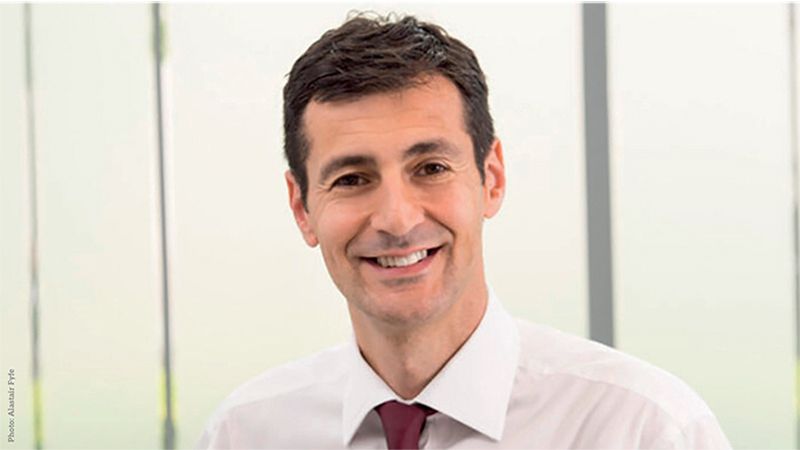Sacha Sadan, director of ESG for the Financial Conduct Authority (FCA), has described the “enormous pipeline of funds” applying for labels under the Sustainability Disclosure Requirements (SDR), at the same time empathising with firms that are having to apply for the third or fourth time, saying they are “in better shape now”.
At a Good Money Week event run by Fund EcoMarket, guests heard in previous panels the huge challenges firms faced in seeking an approved label for their funds. They critiqued the regulator’s approach for rejecting applications – in some cases two to three times – but not providing clarity on what needs to be changed in the disclosures.
See also: SDR update: Schroders adopts ‘Impact’ label, policy statement for portfolio managers due in Q2 2025
Sadan, however, said he was pleased to see 10 funds had publicly announced they had received a label and “there are multiples of that in the system, there is an enormous pipeline”.
“It is a process, and it is getting much better. Some have got it, some are close and some have only answered three out of the five questions. But they are coming back in better shape each time.”
Sadan added the FCA is continuing to engage with the industry and is also seeking guidance from the Investment Association and the UK Sustainable Investment and Finance Association (UKSIF).
However, he commented: “Not every fund should want a label, and not every fund should get a label – and that’s OK.”
Earlier at the event, WHEB Asset Management’s head of research Seb Beloe had talked about the process of its FP WHEB Sustainability Impact OEIC being approved by the regulator for a Sustainability Impact label, while Stewart Investors’ portfolio specialist Clare Wood shared the reasons behind her firm’s decision to not apply for a label and drop ‘sustainability’ from its fund name (more on this follow).
Responding to comments that firms were none the wiser on why their applications were rejected, Sadan said the FCA was “purposefully trying not to be too prescriptive”.
“We have people coming to us and saying ‘these are our qualitative standards. That’s fine but you still need to explain it, and how it is linked to sustainable outcomes, or you won’t get a label.
“It has got to be something people understand.”
Sadan emphasised the regulator had listened to the industry throughout the consultation; for example the ‘transition’ category was changed to ‘improvers’ as it was felt not many customers understood what ‘transition’ meant in the context of sustainable investing.
‘Transition to what? That’s what we got asked,” he said.
Further, the ‘impact’ label was widened to include listed equities in the final requirements.
“We are seeing some good impact labels coming through but, importantly, we didn’t just want to see these in real assets. It can be done in equities, but they have to be more specific.”
International alignment
Sadan admitted it may feel challenging for the industry now in this implementation process but emphasised: “What we are doing now will be quite helpful for you in future even though it might not feel like it now.”
He pointed to standards in other jurisdictions around the world lining up with SDR. After a visit to Hong Kong and Japan last week Sadan said their ESG ratings regimes are looking 90+% similar.
He is particularly encouraged the International Sustainability Standards Board (ISSB) will be adopted by companies in countries around the world and this, in turn, will support the SDR regime.
“We are working hard to get ISSB everywhere in the world. This means every country will be measuring in the same way, and this will improve the labels. Investors will have a lot more data at their disposal to help meet sustainability outcomes.”
Discussing the different acronyms used in disclosure standards, including SDR, SFDR, ISSB, Taskforce for Climate-related Financial Disclosures (TCFD) and Taskforce for Nature-related Financial Disclosures (TNFD), Sadan said: “The good news is the alphabet soup is merging. The UK was one of the first countries to mandate TCFD, and TCFD has become part of ISSB. Every country will be looking to report on this.
“Similarly with Transition Plans and having 1,000 companies signing up to net-zero by 2050 at COP26 – this links to our ‘improver’ label.
“All the information is coming together that will help you. It is all converging, if we get this sorted now we will get international collaboration on single standards. It will be helpful for everyone, something we didn’t think would happen a few years ago.”








